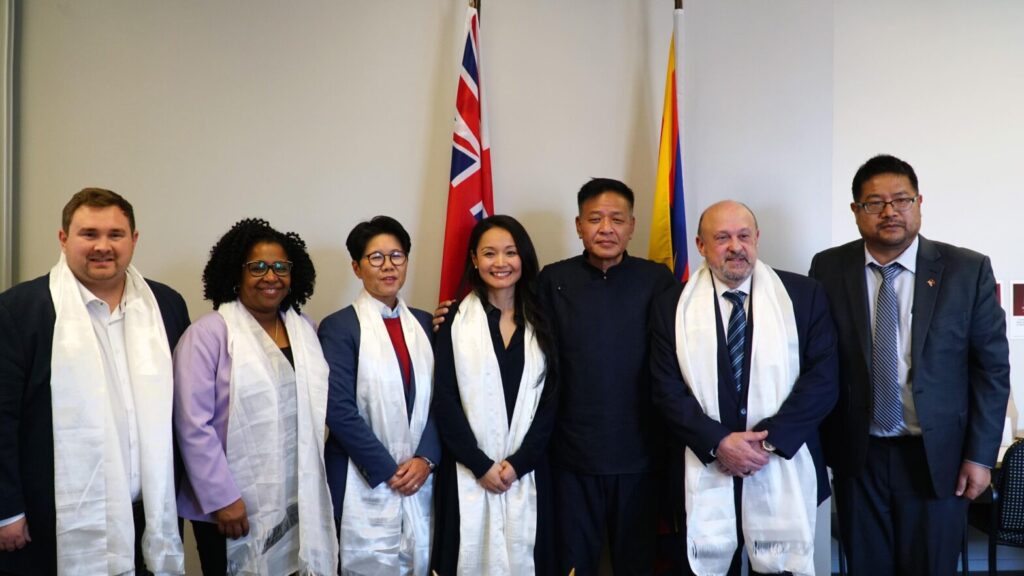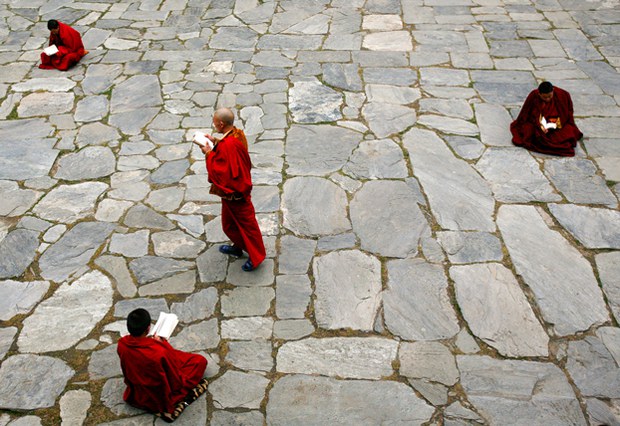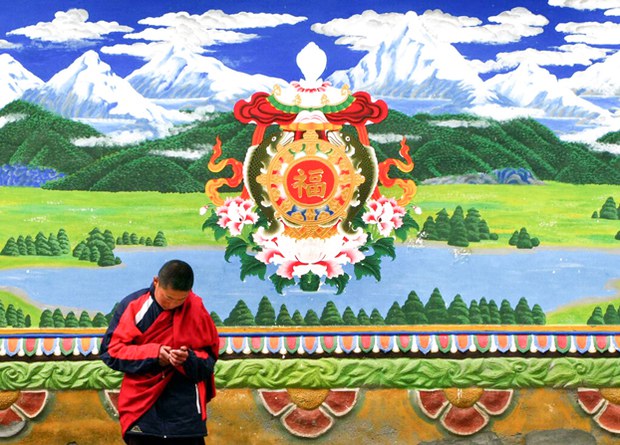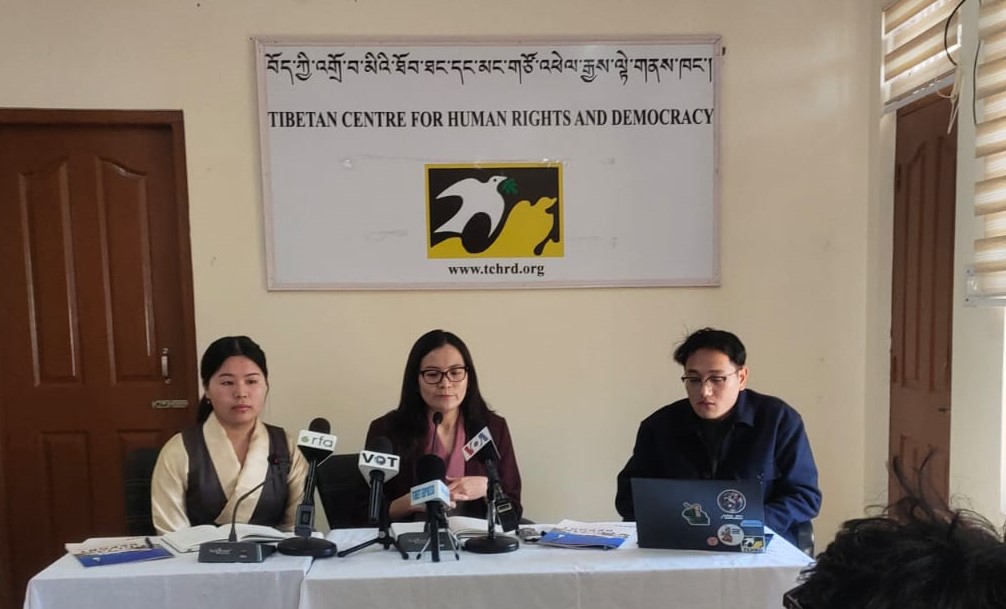The chairman of the International Campaign for Tibet spoke before a Senate subcommittee Tuesday about how Chinese censorship hurts US interests, particularly when it comes to Chinese-occupied Tibet.
Richard Gere, the world-famous actor, social activist and philanthropist, was one of four witnesses at the “Censorship as a Non-Tariff Barrier to Trade” hearing held today, June 30, 2020, by the Senate Finance Committee’s Subcommittee on International Trade, Customs, and Global Competitiveness.
The subcommittee’s Chairman John Cornyn, R-Texas, and Ranking Member Bob Casey Jr., D-Pa., led the hearing.
Lack of reciprocity
Throughout his testimony, Gere—who has served as chair of ICT’s board of directors since 1995—emphasized that China’s censorship complements its refusal to give American journalists, businesses and ordinary citizens the same level of access to China that their Chinese counterparts have to the United States.
The Chinese government’s failure to reciprocate is even more acute in Tibet, a historically independent country that China annexed in 1959 and continues to rule with an iron fist.
Noting that “Americans have a strong interest and appreciation for Tibetan people, for the unique Buddhist culture and their fragile, very beautiful land,” Gere said: “The Chinese government highly restricts access to Tibet for Americans—including journalists and politicians—like no other areas of China, while Chinese citizens face no such limitations when they visit the US. They go where they want.”
Gere commended Congress for passing the Reciprocal Access to Tibet Act in late 2018. RATA requires the State Department to sanction the Chinese officials directly responsible for keeping American citizens out of Tibet.
“This is a good, very rational and systematic response, and we hope the State Department will implement it soon, as required by law now,” Gere said.
Chinese influence in Hollywood
During the hearing, Gere also spoke about the increasing influence of the Chinese government in Hollywood, where he has been a major star for about four decades.
“While I can’t say that my speaking out for human rights in China has directly affected my career, I‘m probably an unusual case …” Gere said in his opening statement. “There’s no doubt that the combination of Chinese censorship, coupled with American film studios’ desire to access China’s market, can lead to self-censorship and to avoiding social issues that great American films once addressed.”
Gere added: “Imagine Marty Scorsese’s ‘Kundun,’ about the life of the Dalai Lama, or my own film ‘Red Corner,’ which is highly critical of the Chinese legal system. Imagine them being made today. It wouldn’t happen.”
Refused entry to Chinese theaters
After Gere’s opening statement, Cornyn commended the ICT chairman for his “courage in confronting the Chinese Communist Party for its methods and tactics of censoring, retaliating and punishing” and asked him to elaborate on Beijing’s impact on the film industry.
Gere discussed the restrictions Chinese officials place on the release of foreign movies in China and listed examples of films—such as the recent Winnie the Pooh movie “Christopher Robin”—that the Chinese government rejected for absurd reasons.
“I see this in studios, and it comes up even recently with me,” Gere said. “There was a script, quite a good script, that takes place partly in China. The producers of it at first balked at the idea of me being in the film. Then they were talked to, and actually, they’re supporters of the Dalai Lama and Tibet. They took a deep breath and said no, no, no, we’re going to make the moral decision here.
“So we are talking about making that film. Of course, we’ll never be able to shoot it in Shanghai. I’m not allowed to go to China. I don’t even know now if I’d be allowed in Hong Kong.”
Gere added that people in the Chinese film industry have told him they can’t work with him because it would end their careers.
One Chinese director “was in tears with me having to call me up and say that he couldn’t work with me,” Gere said, “that his career would be over, and his family could not travel. So this is personal to a lot of people.”
Dalai Lama
In addition to the chair and the ranking member, senators who participated in the hearing included Bill Cassidy, R-La., Robert Menendez, D-N.J. and Catherine Cortez Masto, D-Nev.
In response to questions from the senators, Gere spoke about how the Chinese have a strategy of control that includes preventing any leader from welcoming the Dalai Lama, who is the ultimate symbol of kindness and compassion.
When asked what his recommendation to the White House would be to confront the Chinese challenge, Gere emphasized raising the issue of reciprocity.
Menendez asked Gere further about China pressuring Hollywood to do such things as remove Taiwanese and Japanese flags from American movies.
“It’s very illustrative of their weakness,” Gere said, adding, “It’s the way that they’re hypersensitive about the Dalai Lama, the kindest, most generous man on the planet, who’s consumed and saturated with love and compassion and forgiveness. The mere mention of his name makes them crazy.”
Gere went on to say: “The problem is that communist parties everywhere lack legitimacy, and someone like the Dalai Lama, for instance, is legitimate. People love the Dalai Lama for deep and powerful reasons. You don’t love the Communist Party. You abide by it, because it’s powerful and it controls you. But you don’t love it.”
“I agree with you on the Dalai Lama,” Menendez told Gere, “and I so appreciate, in my other role on the Foreign Relations Committee, what you have done in your long quest to have the recognition and the freedom for the Dalai Lama to do what he does as a spiritual leader of so many.”
Tibetan Policy and Support Act
Gere also asked the members of the subcommittee to cosponsor the Tibetan Policy and Support Act and to raise it with Senate leadership for swift passage.
The bipartisan bill overwhelmingly passed the House in January, where Rep. James McGovern, D-Mass., introduced it with cosponsor Rep. Chris Smith, R-NJ. Sens. Marco Rubio, R-Fla., and Ben Cardin, D-Md., introduced the bill in the Senate.
The TPSA is wide-ranging legislation that will dramatically upgrade US support for the Tibetan people. Among many other provisions, it will establish an official US policy that only Tibetan Buddhists can decide the succession of the Dalai Lama, the Tibetan spiritual leader who turns 85 on July 6.
Chinese officials have said that once the Dalai Lama passes away, they will try to appoint their own Dalai Lama to replace him. But under the TPSA, they will face sanctions for doing so.
The Dalai Lama’s succession “can’t be allowed to be controlled by the Communist Party, but only by Tibetan Buddhists,” Gere told the subcommittee members. “I’m sure that you support this basic principle, and I ask you to cosponsor this bill.”
Ask your Senators to support the TPSA!
Gere also asked the subcommittee members to support the Mongolia Third Neighbor Trade Act, which would grant better access to the US market for cashmere products manufactured in Mongolia in order to benefit Mongolia’s people and reinforce its democratic institutions.
Damage to US economy
In addition to Gere, the other witnesses at the hearing were Beth Baltzan, fellow, Open Markets Institute; Nigel Cory, associate director, trade policy, Information Technology and Innovation Foundation; and Clete R. Willems, partner, Akin Gump Straus Hauer and Feld LLP.
Cory warned how Chinese censorship not only helps the Chinese Communist Party stay in power but also damages the US economy.
“While the primary motivation for censorship in China is regime stability, it gets the economic benefit,” he said. “And the economic benefit to China and the cost to the United States is already significant in that over the last 20 years, a host of US industries and firms have lost hundreds of billions of dollars in revenue.”





